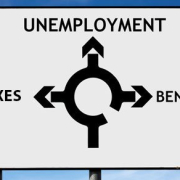Fringe Benefit Implications of Employer-Provided Cell Phones
- Learn about the noncompensatory business purposes test for employer-provided cell phones.
- Find out which three conditions reimbursements for personal cell phones must meet to avoid treatment as additional income or wages.
With so many more employees working remotely over the last couple of years, many employers have had to grapple with whether to provide workers with cell phones or allow them to use personal phones for business purposes.
From a fringe benefits perspective, two questions typically arise when this matter comes up. First, will the IRS view employer-provided cell phones as a nontaxable fringe benefit? What happens if employees sometimes use the phones for personal calls? And second, what could employers do instead of providing cell phones? Could the employer reimburse employees on a nontaxable basis for business use of their personal phones? Fiducial has more information on this topic below.

Providing the cell phone
Business use of an employer-provided cell phone may be treated as a nontaxable working condition fringe benefit so long as the phone is provided “primarily for noncompensatory business purposes.” Examples of noncompensatory purposes include the need to be accessible to an employer at any time for work-related emergencies, or to be accessible to customers outside of normal business hours or when away from the office.
Have you met the noncompensatory business purposes test? If yes, then it follows that the value of any personal use of an employer-provided cell phone will qualify as a nontaxable “de minimis” fringe benefit. But what if a company provides the phone as a substitute for compensation, to attract new employees, or to boost staff morale? Then that employer-provided phone will fail the test — and trigger taxable income.
Reimbursements for personal cell phones
The IRS has indicated that it will analyze the reimbursement of employees’ expenses for their personal cell phones similarly. If reimbursements meet three conditions, they generally will not qualify as additional income or wages.
- The employer has substantial business reasons for requiring employees to use their personal cell phones and reimbursing employees for that use.
- The reimbursements reasonably relate to the needs of the employer’s operations. Also, when calculated, reimbursements do not to exceed the reasonable expenses that an employee typically incurs in maintaining the phone.
- The reimbursements aren’t a substitute for a portion of an employee’s regular wages.
So, let’s say an employer reimburses an employee for a basic cell phone plan that charges a flat monthly rate for a specified number of minutes of domestic calls. What if the employee uses some of those minutes for personal calls? In such a case, the portion of the cost attributable to personal use can be deemed a nontaxable “de minimis” fringe benefit if all three requirements noted above are met.
Further info
These rules also apply to similar telecommunications equipment. Although the IRS doesn’t define that phrase with complete clarity, the agency has affirmed that tablet devices are eligible. Fiducial can provide further information and help you decide which fringe benefits are best for your organization. Call Fiducial at 1-866-FIDUCIAL or make an appointment at one of our office locations to discuss your situation.
Ready to book an appointment now? Click here. Know someone who might need our services? We love referrals!
For more small business COVID-19 resources, visit Fiducial’s Coronavirus Update Center to find information on SBA loans, tax updates, the Paycheck Protection Program, paid sick and family leave.









